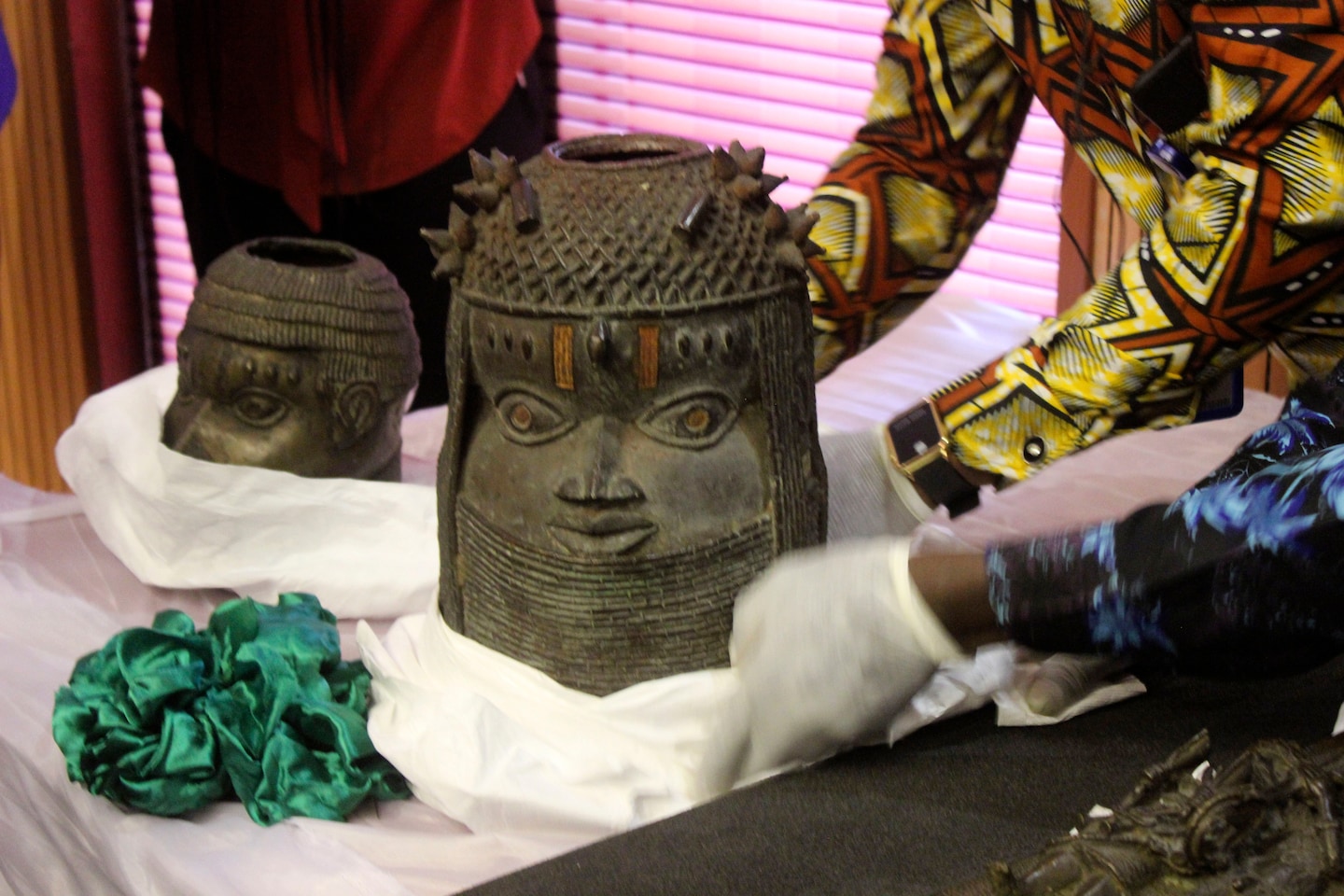“Today we’re taking a step that was long overdue: We’re returning 20 #BeninBronzes to their homeland Nigeria,” German Foreign Minister Annalena Baerbock tweeted on Sunday, ahead of the Tuesday transfer. She had traveled to Abuja, Nigeria’s capital, for the handing over of the first batch of artworks from five collections.
“It won’t heal all the wounds of the past. But we’re showing that we are serious about coming to terms with our dark colonial history,” she added.
The Benin bronzes date back to the 16th century onward and include brass and bronze sculptures, as well as objects made of ivory and other materials.
In July, Germany signed a deal with Nigeria to return the estimated 1,100 bronzes held in its museums, which are among more than 5,000 pieces believed to have been stolen during the British campaign.
“Officials from my country once bought the bronzes, although they knew that they had been stolen and looted. Afterward, we ignored Nigeria’s request for them to be returned for a very long time,” Baerbock said in a speech Tuesday. “It was wrong to take them. But it was also wrong to keep them.”
Nigeria’s information and culture minister, Lai Mohammed, thanked Germany for the move, saying in his address: “Twenty years ago, even 10 years ago, nobody could have anticipated these bronzes returning to Nigeria, because the obstacles to achieving repatriation were seemingly insurmountable. But today, with the pioneering gesture of a friendly nation, Germany, the story has changed.”
Some of the artifacts will remain on loan to German museums, Baerbock said.
Mohammed called on other countries and institutions to follow Germany’s example, specifically mentioning London’s British Museum, which holds more than 900 objects from the Kingdom of Benin.
“The British Museum and all those holding on to our artifacts must understand that repatriation is a cause which time has come,” he said, noting that the institution has yet to respond to an official Nigerian request from last year to return the antiquities. “They must also understand that many of these cultural objects are not mere art to us but the true essence of our being.”
In a statement to The Washington Post, a spokesperson said the British Museum “understands and recognises the significance of the issues surrounding the return of objects,” and that it “remains committed to thorough and open investigation of Benin collection histories.” It added it is working with the Nigerian government, among other groups.
Other Western museums have taken steps to transfer bronzes in their collections.
In August, the Horniman Museum and Gardens in London agreed to return 72 items, including Benin bronzes, while the Smithsonian transferred the ownership of 29 bronzes to representatives of Nigeria’s National Commission for Museums and Monuments in October.
Germany has its own colonial legacy to reckon with. Last year, officials acknowledged for the first time that their country committed genocide during its occupation of what is now Namibia, in southwest Africa. The admission came more than a century after the crimes took place and followed more than five years of negotiations between the two nations.
However, Germany refused to pay direct reparations and instead pledged more than $1 billion in development projects in communities inhabited by the victims’ descendants.



